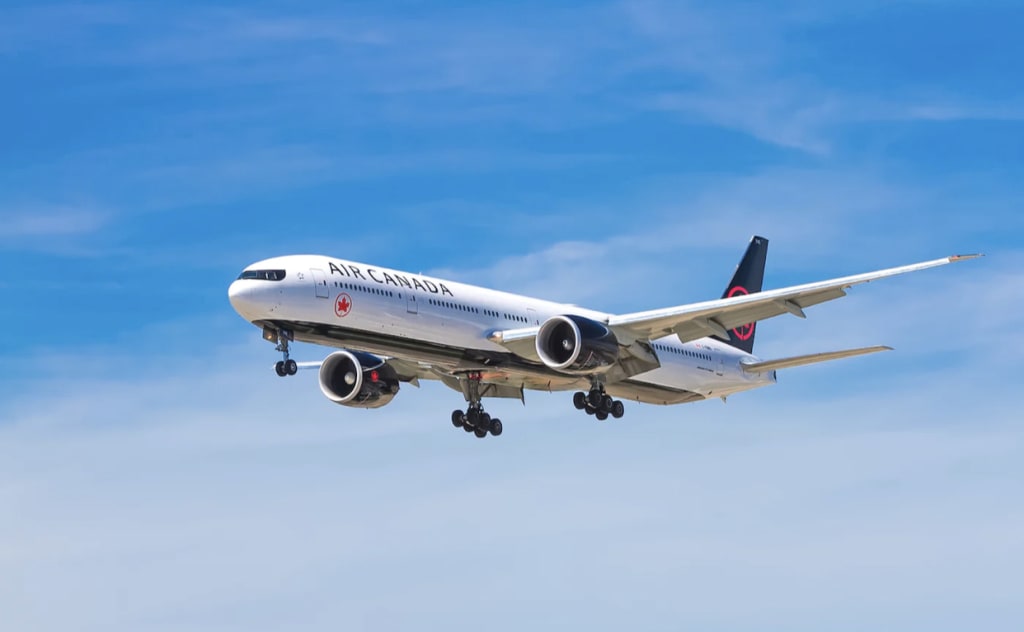Flight Secrets That Are Not Told Passengers
Incredible flight secrets

Welcome aboard this Be Amazed , ladies and gentlemen. As we soar through the skies today, I'll be unveiling some little-known mind-blowing facts about aviation. From the truth behind airline food to choosing the safest seat that could save your life, get ready to learn some of the craziest flight secrets that are rarely shared with passengers.
Before we begin boarding, let's talk about the boarding process. Many passengers rush to join the boarding queue, but did you know that most airlines pre-assign specific seats to passengers? Boarding last can actually minimize your time spent waiting on board. So, if your hand luggage isn't bulky, there's no need to stand in line; your seat already has your name on it. Boarding last also helps speed up the overall process by reducing congestion at the gate.
While you wait, take a moment to glance at your boarding pass. The six-digit alphanumeric code on it is called a Passenger Name Record (PNR), used to identify individual passengers and their flight itineraries. It holds sensitive information like your date of birth, contact details, credit card info, passport details, and more. Always be cautious and never throw your boarding pass in a public trash can.
Now, let's talk about those mysterious codes on boarding passes. If you find a "4S" code, it means you've been selected for additional security screening. This designation is given to passengers who might raise suspicion, so don't worry if you see it; it's just part of the safety measures airports implement.
As we continue our journey, let's discuss the challenges airplanes face. Collisions between planes and birds are more common than you might think. Airports use various methods to keep birds away, including firing blanks from cannons, using pigs to eat gull eggs, and even using LED screens with big googly eyes to scare birds of prey.
Extreme weather, like hailstorms, poses another threat to aircraft. Hail can cause significant damage to planes, but pilots and aircraft are equipped to handle such situations safely. Lightning strikes are also a concern, but planes are designed to handle them, redirecting the electrical charge to the exterior shell.
Now, let's demystify what happens to waste in airplane toilets. Contrary to popular belief, plane toilets don't empty into the sky. Waste is collected in holding tanks and disposed of properly after landing. However, sometimes accidents happen, resulting in blue ice falling from planes. It's crucial not to touch or consume it, as it contains waste and disinfectant.
Speaking of airplane toilets, did you know there's a secret way to unlock them from the outside? Flight attendants can open locked lavatories using a hidden mechanism behind a metal lavatory sign. But let's keep that between us and not use it for pranks!
Let's move on to the topic of in-flight meals. Airplane food has a reputation for being subpar, but it's not entirely the fault of the airline. The low humidity in airplane cabins affects our ability to taste and smell, so meals are often seasoned with more salt and sugar to compensate. Wearing noise-canceling headphones can actually enhance your perception of taste during the flight.
While first-class may seem appealing, business class can often offer a similar experience at a fraction of the price. Many airlines invest in improving their business class services, making it a comfortable and luxurious choice for long-haul flights.
Now, let's venture into the world of pilots and flight attendants. Ever wondered how they manage to stay so alert during long-haul flights? Well, there are secret rest compartments on some planes where they can catch some rest. These compartments are strategically located to allow the crew to recharge during extended flights.
In-flight deaths, though rare, are something the cabin crew must be prepared for. Unfortunately, removing a deceased passenger from the aircraft may have to wait until the final destination. Some airlines provide a designated compartment to store a deceased passenger during the flight.
As we wrap up this fascinating journey, remember that air travel is incredibly safe, and your odds of encountering any major issues are exceptionally low. Trust in the expertise of the crew and the advanced technology that makes modern air travel secure and reliable.
Thank you for reading . We hope you enjoyed the journey and learned some eye-opening facts about aviation. Have a wonderful day!





Comments
There are no comments for this story
Be the first to respond and start the conversation.